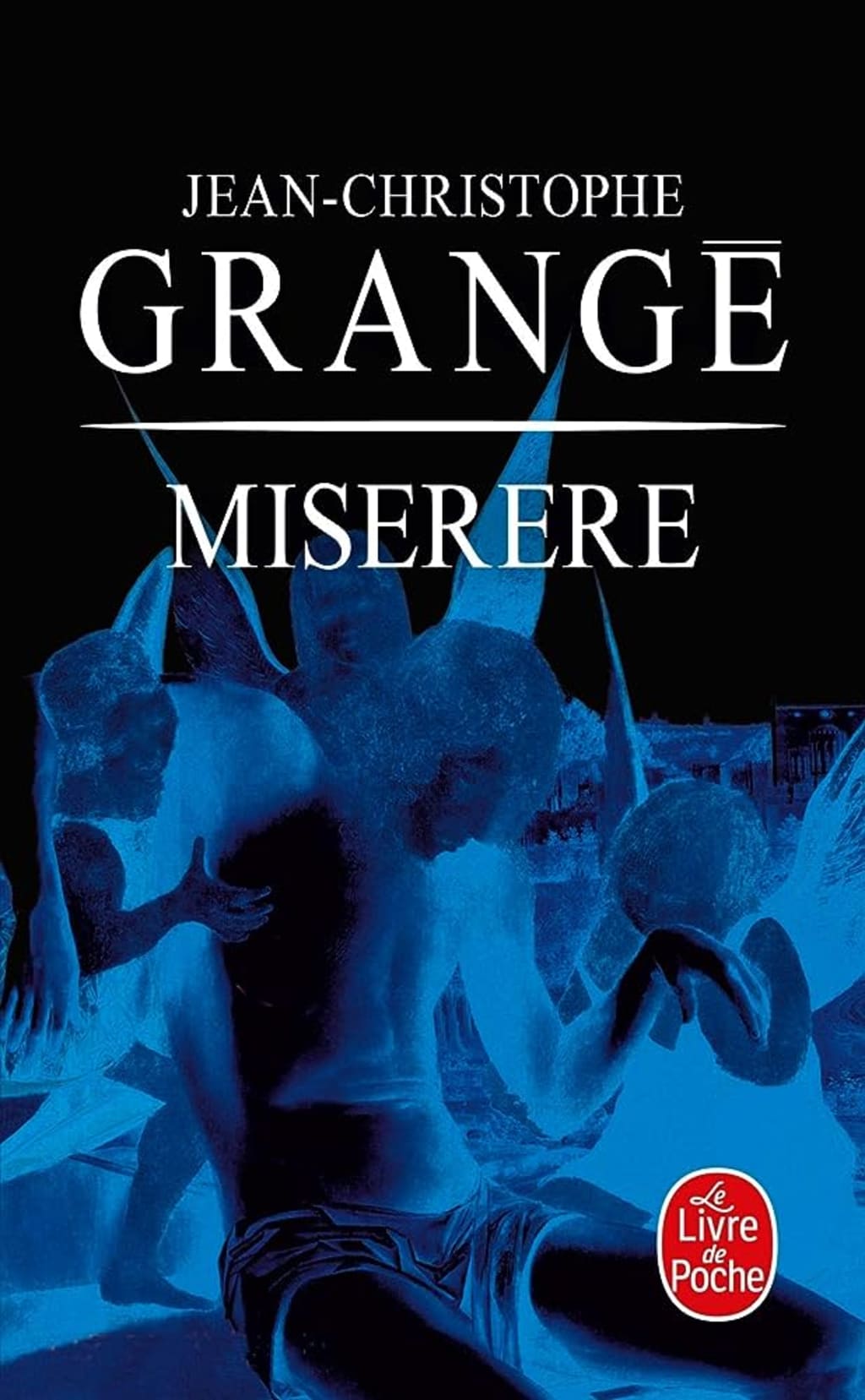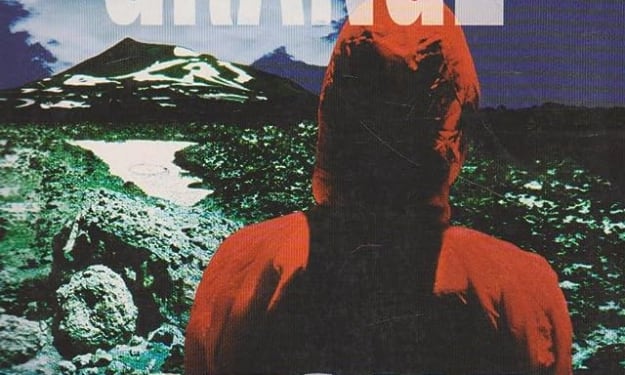"Miserere": Jean Christophe Grange's Riveting Exploration of Darkness"
"Miserere": What Does It Tell? Its Main Idea and Summary

The pace that takes your breath away, the excitement and tension that never cease! They were children...
In the purity of the most exquisite diamonds...
No tiny blemishes... No slightest flaws...
And no smallest sins...
But their innocence was the innocence of evil...
A murder committed in an Armenian cathedral in Paris. No blood, no murder weapon, no wounds...
One is an elderly and grumpy retired police officer, the other is a young police officer addicted to drugs, who has been suspended but still serves in the Juvenile Bureau. These two must work together to uncover the perpetrator or perpetrators behind increasingly brutal murders that are happening one after another. They need each other, they complete each other. However, these murders are not the work of an ordinary serial killer. Secret services, Nazis, Jews, countries within countries, and "black zones"... As if someone wants to hide something.
Could there be another country in the heart of France?
Who was turning a blind eye to this country?
What is happening here?
What is the connection between the abducted children and the victims who were killed?
Will the efforts of the two police officers be enough to uncover the murders?
Or...
"Miserere" (Misery) Quotes - Lyrics:
"When you hate people, you get to know them better."
"Fanaticism is the worst form of violence."
"You're very ignorant. - You know nothing but violence..."
"That's your usual mistake. Underestimation."
"And that's what I love about you. All those promises..."
"The human soul couldn't absorb so much truth at once."
"What surprised me wasn't the dreadful injustice of death within life. Quite the opposite. I understood to what extent life is a part of death, to what extent life is merely a small parenthesis."
"When you hate people, you get to know them better."
"Human beings were created to dream, to struggle rather than to obey."
"Mankind was rotten to the core, as always. Always the same Homo erectus."
"I was 17. Do you remember what you were doing at that age? I was sharpening my dreams like a knife."
"He couldn't tolerate this consumer society."
"A deep sadness filled him, even though he tried to act as if it didn't exist. A sadness he could never forget, a sadness he couldn't wipe away."
"Blue on blue. Sky against the highway. Indigo against the asphalt."
"Human beings were created to dream, to struggle rather than to obey. This was the rule of evolution."
"For a long time, he had stopped judging people. He no longer believed in betrayal because he no longer believed in the oaths that were taken."
"Miserere" Review - My Personal Thoughts:
When you see an Armenian, a Russian, and a Chilean victim, you might immediately think of political rivalry and clashes between races. But it's not like that. Kasdan is a retired police officer of Armenian origin. Volokine is a drug addict, a member of the Child Protection Bureau, and a suspended police officer. The common point between them is Wilhelm Goetz, a Chilean who was murdered in an Armenian church. Goetz was the orchestra conductor of the children's choir in the church where he was killed. The first person to find his body is Kasdan. He tirelessly works to solve this murder that took place in what he considers his own church. Their paths intersect with Volokine at some point. The clues they find lead these two colleagues to the torture methods used during the coup times in Chile. These methods are characterized by unimaginable brutality and cruelty. Thinking it's a race crime, they embark on the investigation, but find themselves in the middle of an experiment. The reasons behind these experiments and the identities of the subjects take the investigation to a completely different direction. Jean Christophe Grange once again crafts an exciting narrative filled with an astonishing chain of events and mysteries, with each detail leading to entirely new questions. I generally love the author's writing style, but when you delve into the details, his habit of referring to characters as Armenian, Russian, etc., instead of using their names made me slightly uncomfortable. Still, each event kept me intrigued, wondering what would happen next. Because I loved the theme of the book and the excitement it provided so much, I tried to overlook this aspect of the author's writing. In my opinion, Jean Christophe Grange is truly a masterful author in the crime thriller genre. He can convey all the horror and excitement to us.
As a Grange fan, I highly recommend you to acquaint yourself with his writing. Every time I think of the book "Flight of the Storks" my excitement increases. He is an author I will never tire of recommending to you.
Who is the Author Jean Christophe Grange?:

French author Jean-Christophe Grange was born on July 15, 1961, in Paris. He worked as a freelance journalist for various news agencies and newspapers.
His first novel, "Flight of the Storks", was published in 1994. This book sold 450,000 copies in France and was adapted into an eight-episode TV series.
The author's second work, "Blood Red Rivers", has been translated into 20 languages. The novel was adapted for the big screen with Mathieu Kassovitz directing and featuring Jean Reno and Vincent Cassel in the leading roles.
Grangé's third novel, "The Stone Council", was released in September 2000 and quickly sold 150,000 copies in France.
In 2006, the book was adapted into a film directed by Guillaume Nicloux, starring Monica Bellucci, Catherine Deneuve, Moritz Bleibtreu, Sami Bouajila, Elsa Zylberstein, Nicolas Thau, Tubtchine Bayaertu, and Laurent Grévill.
In 2001, he co-wrote the screenplay for the film "Vidocq" with Pitof.
In 2003, he published "The Empire of the Wolves". The work was adapted into a film in 2005, featuring Jean Reno.
Grangé's work "The Black Line", written in a short time frame of about a year, was published in May 2005.
His 2007 publication is "Les Serment des Limbes".
His next book, "Miserere", was released in August 2009.
The subsequent book, "La Fôret des Mânes", met readers in 2010.
In 2011, he released the work "Le Passager".
In addition to these, the author has written novels such as "Kaiken", "Lontano", "La Terre des Morts", "La Dernière Chasse", "Congo Requiem", and also a comic book titled "La Malédiction de Zener".
Wishing You Enjoyable Reading in Advance.
About the Creator
NilSercan
Exploring the world through words. Join me on a journey of knowledge and exploration
Enjoyed the story? Support the Creator.
Subscribe for free to receive all their stories in your feed. You could also pledge your support or give them a one-off tip, letting them know you appreciate their work.






Comments
There are no comments for this story
Be the first to respond and start the conversation.